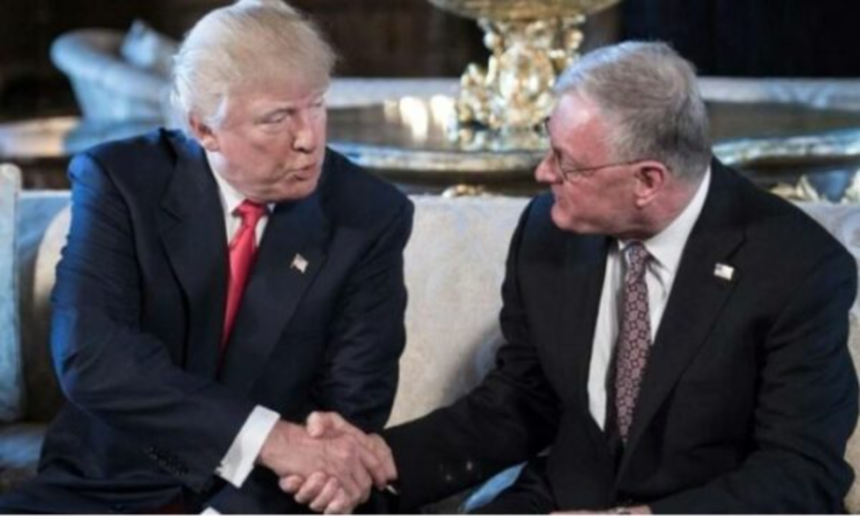Former U.S. President Donald Trump has announced that he has nominated retired General Keith Kellogg as the special envoy for Ukraine and Russia. This move comes as part of Trump’s promise to swiftly end the ongoing war in Ukraine.
“Keith has had an outstanding career in the military and business and has served in highly sensitive national security roles during my first administration. He has been with me from the beginning! Together, we will ensure peace through strength and make America and the world safe again,” Trump wrote on the social network, Truth Social.
Currently, there is no specific envoy for the war in Ukraine, but the 78-year-old former president has expressed interest in creating this position.
Who is Keith Kellogg?
Keith Kellogg (80 years old), a retired general, served as the National Security Council Chief of Staff and National Security Advisor to then-Vice President Mike Pence during Trump’s first term.
Trump had earlier promised to bring an end to the war in Ukraine quickly, leveraging his relationships with both Ukrainian President Volodymyr Zelensky and Russian President Vladimir Putin. However, this position has raised concerns among Kyiv’s supporters, who fear that Trump may negotiate a deal that could cede Ukrainian territories to Russia or jeopardize Ukraine’s future security.
What is Kellogg’s Plan?
According to reports from Reuters, Kellogg’s plan to end the war, presented to Trump in July, includes the following key points:
Conditions for Military Aid: Ukraine would only receive additional U.S. military aid if it agrees to engage in peace negotiations with Russia.
Pressure on Russia: The U.S. would warn Russia that if it refuses to negotiate, Washington will increase its support for Kyiv.
Freezing the Front Lines: The current front lines would be “frozen” at their existing positions—a proposal that has been rejected by both sides so far.
NATO Membership: The issue of Ukraine’s potential NATO membership would be removed from discussions, at least for the near future.
This plan is controversial, as it would allow Russia uncontested control over parts of eastern Ukraine for an extended period.
Moreover, some Republicans, particularly in the House of Representatives, might oppose increasing aid to Ukraine. Russia began its invasion of Ukraine on February 24, 2024, leading to thousands of casualties and extensive material damage.







